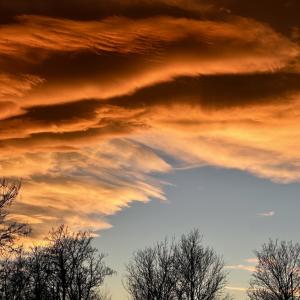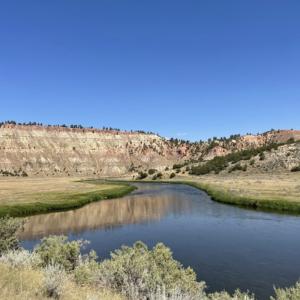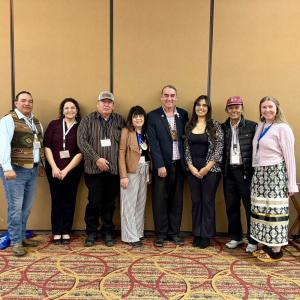News
NC CASC Webinar Series - Thursday, February 12, 2026
Many climate adaptation planning processes and tools exist, but their relationships to one another are often unclear. This webinar highlights commonalities among major adaptation frameworks and tools and presents a generalized, climate-informed approach to resource stewardship that supports clearer communication, coordination, and cross-jurisdictional collaboration.
Managing Climate Change in Wilderness: Scenario-Based Approaches for an Uncertain Future
How do you manage for change in places meant to remain wild? That is the central question facing land managers across the American West as climate change accelerates ecological transformation, even in federally protected wilderness areas. A new NC CASC-supported case study, “RAD Decisions in Rad Landscapes: Black Ridge Canyons Wilderness”, tackles this challenge head-on.
Ulyana Horodyskyj Peña
Upcoming Tribal Community Resilience Webinar Series
Join us for presentations and Q&A focusing on how Tribal Nations, Native Villages, and Pueblos are responding to resilience challenges across regions throughout the U.S., hosted by regional Tribal Community Resilience Liaisons. These webinars will take place from February - September, 2026 on the first Thursday of every month (1-2 PM MT).
RAD Webinar Series
The USGS National Climate Adaptation Science Center is pleased to announce a quarterly webinar series on the RAD (Resist-Accept-Direct) framework in collaboration with the National Conservation Training Center. This series focuses on examples of RAD implementation and reflects on practical applications of RAD concepts.
Climate Change Adaptation for Tribes & Tribal Partners
Please "Save the Date" for a climate workshop, hosted at Haskell Indian Nations University, from April 7-9, 2026! Practical tools and guidance will help Tribes and Tribal partners plan for, and respond to, climate change challenges while honoring their traditional knowledges.
Protecting Water, Lands, and Culture: Highlights from the Great Plains Tribal Water Alliance Annual Conference
On November 5-6, 2025, the North Central Climate Adaptation Science Center’s Tribal Climate Resilience Liaisons Janna Black and Kynser Wahwahsuck Bell helped host the Great Plains Tribal Water Alliance (GPTWA) Annual 2025 Conference in Deadwood, South Dakota.
Ulyana Horodyskyj Peña












